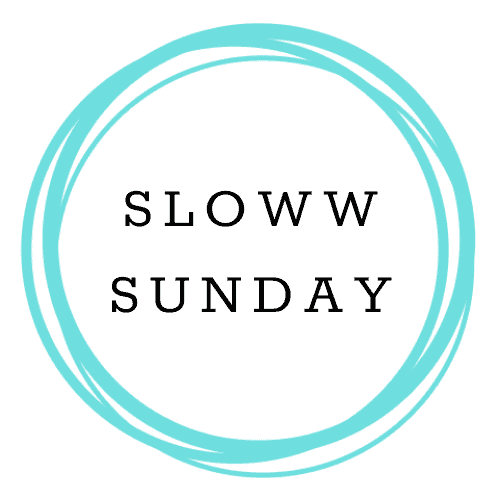Sign up to get the Sloww Sunday newsletter via email for free:👇

Sloww Sunday Newsletter 072 (August 8, 2021) — Whole Brain Living, Mimetic Desire, Non-Duality, & More
Hi friends,
Here’s the latest from Sloww along with the most interesting things I discovered last week. To respect your time and attention, every newsletter can be read in under 5 minutes. If you enjoy it, please take 5 seconds to share it with someone who could benefit from it.
Happy learning and living!
New News
👋 Want to get to know me? I wrote a short Twitter thread this week: “10 Things You Didn’t Know About Me”
🆕 In case you missed it last week, the “Ikigai 2.0” eBook is now for sale individually! I truly believe it’s the only guide to life purpose you’ll ever need.
Here’s what readers are saying:
💡 “The Ikigai book is brilliant.”
🤯 “Unlike anything I’ve read before.”
🧠 “Changed the way I think about life.”
🌀 “The most logical approach to this complicated concept.”
📝 “I have this printed out and made tons and tons of notes.”
PS: If you’re a Premium member, this eBook is included! You can download your copy here.
PPS: If you have family or friends who haven’t heard of Sloww but may like the eBook, please share this with them: IkigaiBook.co
Sloww Stuff
🆕 Book Summary (Public):
The Four Characters of Your Mind: “Whole Brain Living” by Jill Bolte Taylor
Quite possibly the most urgent and important book I’ve read this year. Don’t miss this one! I’m continuing my dive into the brain hemispheres with Iain McGilChrist’s “The Master and His Emissary.”
“I am a true believer that the most important relationships we have are the ones that are being carried out inside of our own head.” — Jill Bolte Taylor
🔒 In Case You Missed It (Premium):
Keep the brain insights going with this Premium synthesis. I couldn’t help but notice a similarity between the books Atomic Habits by James Clear and Find Your Why (also Start With Why) by Simon Sinek. Instead of presenting the brain in a complex fashion that makes your eyes glaze over, Clear and Sinek boil the brain down to three simple circles.
“The world has changed much in recent years, but human nature has changed little.” — James Clear
Modern Knowledge
👀 What is the Mimetic Theory of Desire?
(36 mins | YouTube)
René Girard was a polymath, philosopher, historian, and prolific author. One of Girard’s most well-known theories is the “mimetic theory of desire.” You may think you solely, freely, and consciously chose your desires. But, what if you didn’t at all? What if you want what you want because other people want it?
Girard proposed that human development and behavior occurs through a process of observational mimicry or mimesis (imitation, representation, the act of resembling). Essentially, we copy our desires from others. But, it’s not quite that simple.
Highlights:
- How is desire born? “I think desire usually is born out of the contemplation of someone else who is desiring and who designates to you the object of desire is desirable.”
- What is the “triangular relationship of desire”? The triangular relationship includes the subject (you), the model/mediator (someone else), and the object (something desired).
- The important role of the model/mediator: The model/mediator directs the subject toward a desire. They show us what is worth desiring. “Example is the key to bad as well as good behavior … People imitate each other in their desires, but they also imitate each other in their dislikes.”
- A critical twist: Our (subject) desire for something (object) is provoked by the desire of another person (model/mediator) for the same thing. Interestingly, what is ultimately desired is not the object itself, but the model/mediator! As Girard says, “All desire is a desire to be.”
- A modern example: Think about how marketing often sells you (subject) an idealized version of yourself (model/mediator) through the purchase of a product (object) instead of just telling you about the product itself. It’s much more powerful.
“Man is the creature who does not know what to desire, and he turns to others in order to make up his mind. We desire what others desire because we imitate their desires.” — René Girard
Timeless Wisdom
🧘 Happiness, Enlightenment, & Non-Duality with Rupert Spira
(59 mins | YouTube)
Spiritual teacher and author Rupert Spira says he first had intuitions about non-duality when he was 7 or 8 years old. However, it’s taken him 50+ years to turn his childhood intuition into his actual experience of life. Now, he says it’s all very simple.
Podcast Highlights:
- The fundamental mistake: “The belief that when I acquire a certain experience in the future then I will be happy … that peace and happiness are dependent on the content of experience.”
- On thoughts and feelings: “No thought that we have ever had is essential to us. All thoughts appear, they exist briefly, and they vanish. Likewise, our feelings.”
- What is awareness (or consciousness)? “Everything that you are aware of is constantly changing, but that which is aware of it remains consistently present throughout all changing experience.”
- What is enlightenment? “If we were to imagine removing everything from ourselves that is not essential to us, what would remain would be what I refer to as ‘our essential, irreducible self or being.’ The recognition of its nature is what is referred to in the religious and spiritual traditions as ‘enlightenment’ or ‘awakening.'”
- What is non-duality? “The nature of our being or self is happiness itself. And, we share our being with everyone and everything. These are the two core understandings that are the essence of the non-dual tradition.” Here’s how Rupert describes the experience of non-duality (Twitter).
Pair with:
- “The Power of Now” by Eckhart Tolle: Book Summary + 🔒Premium Synthesis
- “Awareness” by Anthony De Mello: Book Summary + 🔒Premium Summary
- “Spiritual Enlightenment” by Jed McKenna: Book Summary + 🔒Premium Summary
“Enlightenment refers to something very simple and well within everybody’s grasp. It is simply this: the recognition of the nature of one’s essential being. It is the truth about what we essentially are … that aspect of ourselves that never disappears.” — Rupert Spira
Mind Expanding
🤯 Consciously choosing Integrity and Simple Living over Family Fortune
(3 mins | YouTube)
The world needs more people like this. John Robbins walked away from his family’s billion-dollar ice cream business, Baskin-Robbins. Once he realized the health implications of ice cream consumption, he told his dad he didn’t want to be the heir to the business or access to the fortune (and he never took any). Instead of following in his dad’s footsteps, John dedicated his life to helping people live healthier lives.
When asked how he could leave the financial security, John said:
“I went from being the heir to a colossal fortune to living very simply … I felt more emotionally secure and spiritually secure when I did because now I was living a more authentic life. I wanted to contribute with my energy and my gifts and my service.” — John Robbins
💭 Deep Quote
“The ability of our brain to manufacture an experience of misery is a total art. We all hurt, and having the emotional capacity to experience true suffering is an amazing part of being alive. We just get into trouble when we spend too much time running that circuitry, believing that it is our truth, rather than realizing that it is simply a group of cells running a circuit. I feel pain. I am not the pain.”
— Dr. Jill Bolte Taylor (neuroanatomist, stroke survivor, speaker, author)
Sharing: If you enjoyed this issue, please help grow Sloww by sending this post to some friends or family who could benefit from it or sharing it on social media. Anyone can subscribe for free here.
Support: Sloww is a one-human labor of love. If you’re interested in supporting my work, there are several financial and non-financial ways to support.
Feedback: Have something you want to say, or just want to say hi? It’s always much appreciated. Just send me an email or reach out socially.
Have a truthful week!
Kyle Kowalski
Solopreneur & Synthesizer, Sloww





